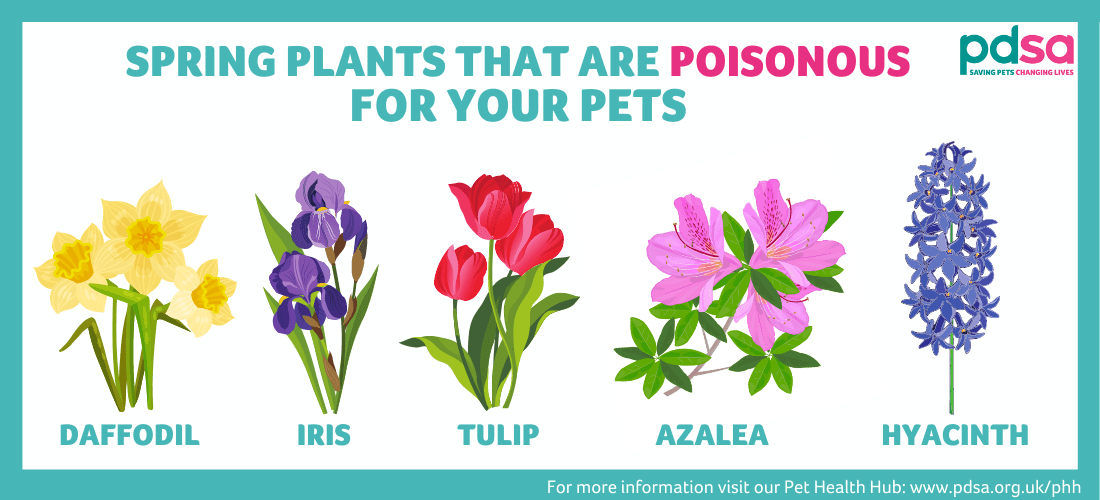Our vets have put together some top tips and advice for taking care of your four-legged friends this spring, so you can both enjoy longer evenings and sunny days in the great outdoors, whilst keeping them safe and cool in the sunshine
Toxic spring plants

As temperatures rise, we begin to see spring bulbs bloom. Many common garden plants, such as daffodils and tulips, are toxic to our pets and can lead to them becoming unwell if they eat them. Bulbs often have a higher concentration of nutrients than leaves or flowers, so can be more dangerous for your pet. When gardening, keep your pets away from any bulbs or flowers, and call your vet straight away if you think your pet has eaten any part of a toxic plant
Bumblebees will also enjoy the fresh flowers appearing in your garden, so keep your pets away from bees buzzing around your borders to avoid painful stings.
Gardening
If you’re sprucing up your garden with a lick of paint this spring, ensure your four-legged friends are kept away from wet paint. Inhaling fumes or swallowing paint can be dangerous for pets.
Countryside walks
The sunnier weather makes longer walks even more appealing. When venturing out into the countryside, look out for farm animals, especially those with offspring like lambs or calves. Keep your dog on a short lead when entering fields to prevent injury and stress to farm animals or your four-legged friend.
Always remember that with warmer weather comes the risk of heat stroke, so on hot days, aim to walk your dog in the evenings or early morning when it’s cooler, and ensure pets have cool areas to rest in, plus access to plenty of fresh drinking water.
Daylight saving
On the last Sunday in March, the clocks go forward an hour, meaning we have an hour less in bed. This can be tricky for our pet’s body clock to adjust to, but preparing them in advance for an earlier wake-up time will help them settle into a new routine.
Read our advice on how to ease your pet into the clocks changing.
Flea and worming treatment
Fleas can be a problem all year round, but they love to breed in warm weather. You may find the problem worsens in warmer months, so make sure you keep their flea treatment up-to-date.
Worming requirements are the same all year round, so make sure you’re keeping up-to-date on their worming treatment too.
Easter chocolate poisoning
Easter eggs are a springtime treat, which can be fatal for your four-legged friend. Each year, we see hundreds of dogs who’ve been poisoned by human chocolate.
We recommend that you store chocolate in the same way as you’d store medicine – well out of the way of pets’ reach.
Read our advice on chocolate poisoning, and if you think your pet has eaten chocolate, call your vet immediately.
Cats coming into season
Spring has sprung and love is in the air for cats. Female cats come into season around this time of year so make sure you’re prepared - they will have heat cycles approximately every 2-3 weeks from February to October. They will usually be much more vocal than normal, roll around more, and become extremely affectionate.
If your cat goes outdoors then it’s important to get them neutered to avoid unwanted pregnancies and help protect them against viruses that can be spread through mating and fighting. Neutering will also stop cats, outdoor and indoor, from developing health issues like pyometra (infection of the uterus which can be life-threatening).
